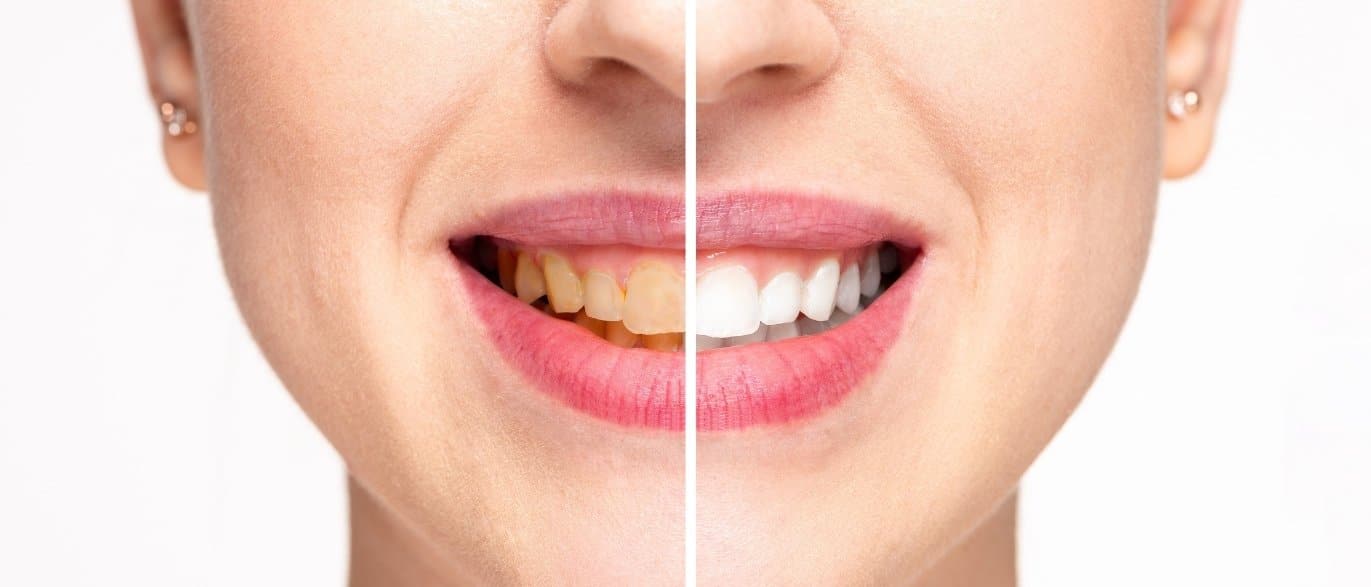Pearl Dental Blog

Tips for Dealing with Sensitivity after Teeth Whitening
Sensitivity after teeth whitening can be a real buzzkill. But don’t worry, we’ve got you covered like a dental dam! Our 10 tips will help you tackle sensitivity like a pro and get back to enjoying all the hot and cold things in life, without wincing like a cartoon character.
Are you someone who has undergone teeth whitening and ended up with heightened sensitivity? If yes, then there’s no need to panic! It’s a common side-effect of the procedure, but it doesn’t mean that you have to endure the discomfort. In this blog post, we’re going to share with you ten effective tips for dealing with sensitivity after teeth whitening. So sit tight and read on to discover how you can get back your sparkling smile without feeling like your teeth are about to fall out!
Tips for Dealing With Sensitivity After Teeth Whitening
You can find multiple ways to deal with sensitivity after a teeth whitening treatment. Here are some of the most effective ways:
- Avoid Hot Or Cold Drinks For The First 24 Hours
To avoid sensitivity after teeth whitening, it is best to avoid hot or cold drinks for the first 24 hours. This will help to soothe the nerves and reduce any discomfort. If you must have a drink, sip slowly and be sure to use a straw.
- Take Over-the-counter Pain Medication If Needed
If your teeth are feeling sensitive after you whiten them, it’s important to take steps to ease the discomfort. One way to do this is to take over-the-counter pain medication if needed. Ibuprofen and acetaminophen are both good options for reducing sensitivity and pain. You can also use a desensitizing toothpaste, which can help to reduce the amount of time that your teeth feel sensitive. If your sensitivity persists for more than a few days, or if it is severe, you should make an appointment with your dentist to discuss other treatment options.
- Rinse Your Mouth With Warm Salt Water
Sensitivity after teeth whitening is common, but there are a few things you can do to ease the discomfort. One of the best things to do is rinse your mouth with warm salt water. This will help to soothe the gums and reduce inflammation. Just be sure to use non-iodized salt, as iodine can actually increase sensitivity.
- Apply A Cold Compress To Your Face For 10 Minutes At A Time
If your teeth are feeling sensitive after teeth whitening, there are a few things you can do to help. One is to apply a cold compress to your face for 10 minutes at a time. This will help to reduce the swelling and inflammation. You can also try using a desensitizing toothpaste or mouthwash. These can help to numb the area and make it less sensitive. If the sensitivity is severe, you may want to see your dentist to get a custom-made night guard or other dental appliance.
- Avoid Eating Hard, Crunchy, Or Sticky Foods
If you’ve just had your teeth whitened, congratulations! A brighter smile can do wonders for your confidence. However, while your teeth may look fabulous, they may also be feeling a bit sensitive. Here are some tips for dealing with this sensitivity and keeping your smile looking its best:
- Avoid eating hard, crunchy, or sticky foods.
These types of foods can aggravate sensitive teeth and cause discomfort. If you must eat them, do so slowly and carefully to avoid irritating your teeth further.
- Choose soft foods instead.
Soft foods are easier on your teeth and will help minimize any discomfort you may be feeling. Try incorporating some into every meal to make sure you’re getting enough nutrients without putting too much strain on your teeth.
- Use a toothpaste for sensitive teeth.
There are special toothpastes available that can help reduce sensitivity and protect your teeth from further irritation. Be sure to ask your dentist which one is right for you.
- Take a break from whitening products.
If you find that your teeth are still sensitive after following these tips, it’s best to take a break from using any whitening products for a while. The sensitivity should subside eventually, and you can always try again later when your teeth are less delicate.
- Stay Away From Tobacco Products
One of the most important things you can do to reduce sensitivity and promote healthy teeth is to stay away from tobacco products. Tobacco use is a major risk factor for gum disease, which can lead to tooth loss. It can also cause staining and discoloration of your teeth. If you smoke or chew tobacco, quitting is the best thing you can do for your oral health.
- Drink Plenty Of Fluids
When you whiten your teeth, the peroxide in the whitening gel can cause temporary sensitivity. To help ease this discomfort, be sure to drink plenty of fluids throughout the day. This will help keep your mouth hydrated and prevent the sensitivity from getting worse. You can also use a sensitive toothpaste or rinse to help relieve any discomfort.
- Brush And Floss Your Teeth As Normal
If you’re experiencing sensitivity after teeth whitening, there are a few things you can do to ease the discomfort. First, brush and floss your teeth as normal. This will help remove any plaque or tartar that may be irritating your gums. You may also want to use a toothpaste designed for sensitive teeth. These toothpastes often contain ingredients that help to soothe the gums and reduce inflammation.
If you’re still experiencing sensitivity, try rinsing your mouth with a saltwater solution. This can help to reduce irritation and swelling. You can also use over-the-counter pain relievers to help ease any discomfort. If your symptoms are severe or persistent, make an appointment with your dentist. They can determine the cause of your sensitivity and recommend additional treatment options.





